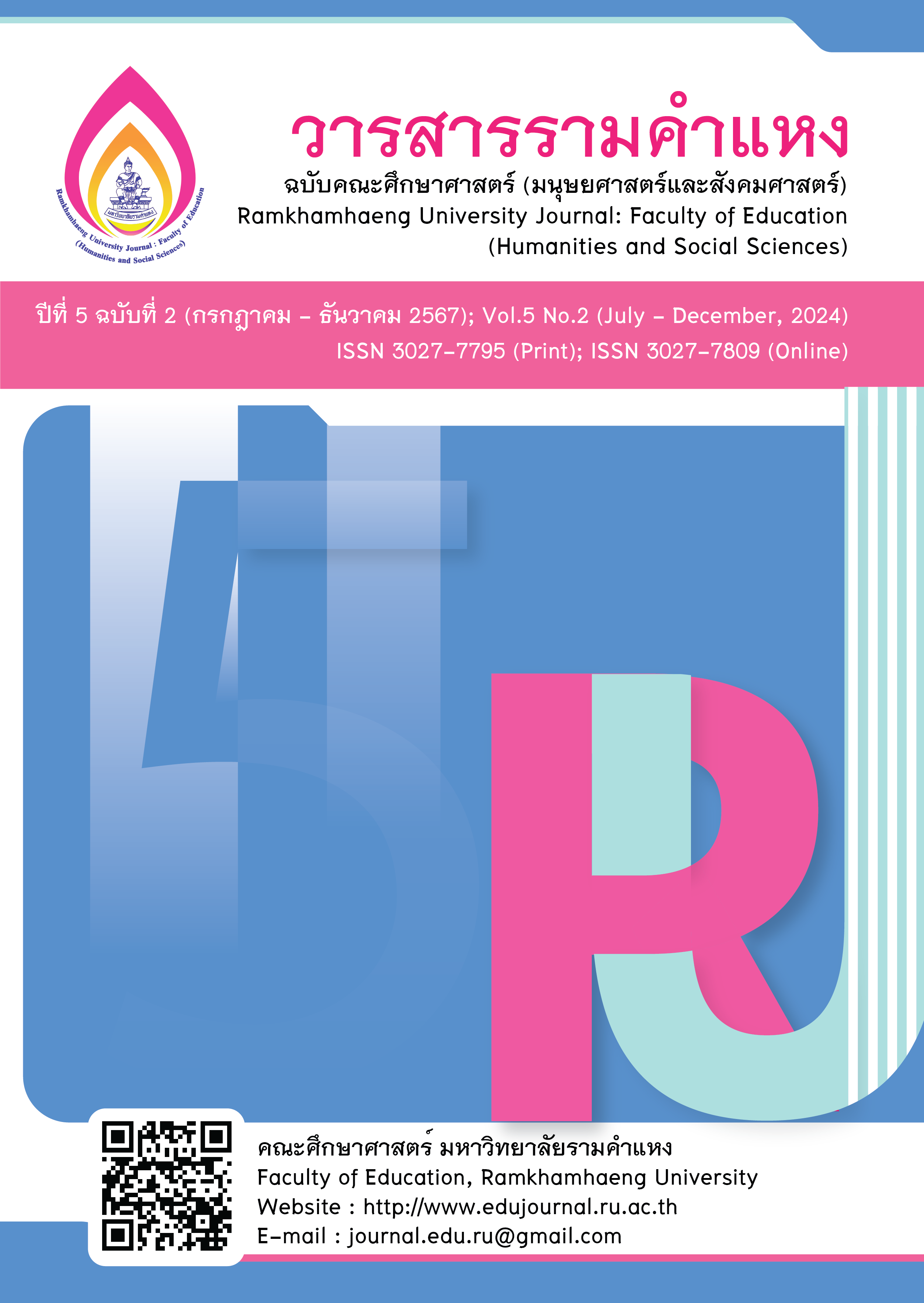The Trait of “Sufficiency” Begins in Early Childhood
Main Article Content
Abstract
The fostering of self-sufficiency traits should develop in childhood because this is the age of learning power and the growth of life. The teachers instill the knowledge of sufficiency, frugality, self-help, rationality, and self-discipline in the children. To develop these characteristics, there should be a process of changing old behaviors to new behaviors by giving experience or training for permanent desirable behavior. Children spend most of their time in kindergarten classrooms. Teachers are the most important people who provide activities for students, including performing daily routine activities, by fostering self-sufficiency traits in children until they grow up as good citizens.
Downloads
Article Details

This work is licensed under a Creative Commons Attribution-NonCommercial-NoDerivatives 4.0 International License.
ผู้ส่งบทความ (และคณะผู้วิจัยทุกคน) ตระหนักและปฎิบัติตามจริยธรรมการวิจัยอย่างเคร่งครัด ทั้งนี้บทความ เนื้อหา ข้อมูล ข้อความ ภาพ ตาราง แผนภาพ แผนผัง หรือข้อคิดเห็นใดๆ ที่ปรากฎในบทความ เป็นความคิดเห็นและความรับผิดชอบของผู้ส่งบทความ กองบรรณาธิการไม่จำเป็นต้องเห็นตามเสมอไป และไม่มีส่วนรับผิดชอบใดๆ โดยถือเป็นความรับผิดของของเจ้าของบทความเพียงผู้เดียว
References
Bunyarit, W. (2017). Assessment and behavior enhancement in early childhood. Sukhothai Thammathirat Open University Press. (in Thai)
Bureau of Academic Affairs and Education Standards. (2017). Early childhood curriculum era 2560. The Teachers’ Council of Thailand. (in Thai)
Iamsupasit, S. (2011). Teaching behavior in early childhood education. Sukhothai Thammathirat Open University Press. (in Thai)
Kammanee, T. (2015). Sufficiency economy philosophy and learning management in example of learning management for promoting sufficiency traits. Amarin Printing. (in Thai)
Khayankij, S., & Iamsupasit, S. (2013). Principles of early childhood education. Sukhothai Thammathirat Open University Press. (in Thai)
Munsettavith, C. (2011). The innovation of early childhood learning for sustainable development based on sufficiency ways. Journal of Education Studies, 39(1), 29-41. (in Thai)
Nacharoen, J & Manoonsilp, A. (2019). Early Childhood teachers and child development according to the King's Philosophy. Valaya Alongkorn Review (Humanities and Social Science), 9(3), 211-221. (in Thai)
Office of the Education Council. (2017). The national scheme of education B.E. 2560-2579 (2017-2036). Office of the Education Council. (in Thai)
Office of the Education Council. (2019). Early childhood development ACT B.E. 2562 (2019). Office of the Education Council. (in Thai)
Pinyoanuntapong, S. (2013). The development of Thai early childhood education curriculum to promote desirable characteristics of preschool children. Procedia-Social and Behavioral Sciences, 88, 321-327.
Sommitr, R. & Makkasman, W. (2017). Innovation media and educational technology in early childhood. Sukhothai Thammathirat Open University Press. (in Thai)
The supporting project of driving sufficiency economy in basic education and youth. (2013). Do & don’t: Sufficiency economy philosophy learning model of early childhood. Yuvabadhana Foundation. (in Thai).
Watanachai, K. (2012). Royal King’s Rama 9 works principle and sufficiency economy philosophy. Borpith Press. (in Thai)


